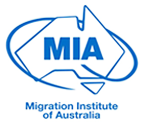My own story in my own way
My life journey from Pakistan to Australia via Saudi Arabia
By Prof. Mohammad Amjad Kamal (PhD)

Around 1960, my family saw me for the first time, when I cried at the time of departure from my micro world within placenta and arrived into a bigger world on this planet on the spot of Pakistan. By passing of time, there was an intellectual (initiated in the primary school, where we were sitting on the ground in the classes) along with physiological growth of my body as reflected by completion of my Master degree in Chemistry (with specialization in Biochemistry) in 1986 from the Chemistry Department, Gomal University.
On the basis of the first position in the M.Sc. (excellence in Biochemistry), I received an award to serve as an accomplished Lecturer in the same Department for five years. Thereafter I was awarded a 5 year sabbatical outside Pakistan. So a significant segment of my research career, 10 years, was spent within the Department of Biochemistry, King Saud University, Saudi Arabia, with the internationally respected biochemist, Professor Al-Jafari, elucidating the interaction of various chemicals and drugs (both anti-cancer and anti-Alzheimer’s agents) on the key enzyme, which is fundamental to nervous system function and life.
Later on, I obtained a Ph.D. (thesis title: “Effect of some anti-cancer drugs on human erythrocyte acetylcholinesterase”) in 1999 from the Chemistry Department, Islamia University, Bahawalpur, Pakistan.
Overall, our research output culminated in more than 132 publications in internationally respected journals, and 61 abstracts in international conferences. The research was pivotal in supporting the development of the novel drug, phenserine, from the laboratory to the clinic via collaboration with Dr Nigel. He is a Chief of Laboratory of Neurosciences in USA.
Specifically, the essential elucidation of the kinetics of phenserine aided in the application and approval of an Investigational New Drug Application by the United States Government Food and Drug Administration to allow the use of the compound in humans to assess its utility in the treatment of Alzheimer’s dementia. In a similar manner, our studies were aided in the development of other novel agents, cymserine and analogs, to test the radically new hypothesis that selective butyrylcholinesterase inhibition is of value in the therapy of Alzheimer’s disease.
Drugs of this class are currently in preclinical development and are expected to translate into the clinic soon.
One day, when I was coming out of the Pakistan Embassy at Riyadh, I found many people coming and going to the neighboring new embassy building, which attracted my attention and sparked my curiosity to figure out the reason for public interest there. When I went inside, I found it was the Australian Embassy. At the counter, one lady asked: “How can I help you?” Nothing was in my mind specifically, so when she repeated the question, I became a bit nervous as a long queue of people was waiting to be served and everyone could hear our conversation. So, I asked, “Do you have some information about Australia?” She replied, “You mean a package?” I said, “ohm…, yes”.
Then she gave me a big A4 brown envelope (package) and asked me to pay $30 Riyals (~Au$12). I was confused about whether I should pay money because I was expecting free broachers/leaflets etc. Anyhow, when I got back to the car, I was saying to myself, “Why did I go there and waste money?” as I never spent money without a good reason. Anyhow, at home, I opened the envelope and read the material. In the end, I found the application forms for migration, but I put them aside for several months. I filled these out one day and lodged them by paying more ~SR1500 as a lodgment fee and then correspondence initiated with the immigration office in Greece.
At semi-final of our application, it reached up to the medical stage; where again we paid ~SR400 for each family member, and then finally, we received advice to enter Australia before April 1998. At that time when we came here, the family missed Saudi Arabia, so after spending just one week, we flew back to Riyadh.
Finally, we have been migrated to Australia after I gained a prestigious U2000 Postdoctoral Fellowship in 2000 that was awarded by the University of Sydney, School of Molecular and Microbial Biosciences. That three years highly competitive award supported 15 Fellowships from some 300 applicants through the world and funded my research on “Inhibition of amido phosphoribosyltransferase by new antifolates: Design and mechanism of action of purine antagonists”.
My research has hence been of critical and immediate importance to medicine and the pharmaceutical industry and is a clear demonstration in the value and application of biochemistry to the medical sciences. This is exemplified by my pivotal involvement in the development of a new class of experimental drugs for the treatment of Alzheimer’s disease as well.
We (me, Dr. Nigel and Prof. Al-Jafari) published the article, “A new, simple and economical approach to analyze the inhibition kinetics of acetylcholinesterase using Tolserine” in the Emirates Medical Journal during 2002. This article was selected for the Hamdan Award for original research and is covered by several web sites as well.
My research within the University of Sydney was focused on the inhibition of the rate-limiting enzyme, amido phosphoribosyltransferase, which catalyzes the first committed step of the de novo purine pathway. This is of critical and immediate relevance for the development of novel selective antifolate-type inhibitors as effective anticancer drugs.
I have developed radically new techniques that define useful new kinetic parameters to quantitatively elucidate the interaction between substrates, inhibitors, and enzymes that others are now routinely beginning to utilize. Such work is providing others the tools and knowledge to design the selective and effective medicines of tomorrow.
Regarding the private part of my life, in 1989 my life shadow, which became double through biological bonding while next year further propagated by the generation of our first kid. Later on, it further extended to 4 during 10 years stay in Saudi Arabia and completed to half dozen in 2005 here in Sydney. Prior to moving to Australia, I took advice from one of my best friends in the world. He was not in much favor in the light of the experience of one of his other colleague, who was struggling for a job here, however, I jumped at that time in 2000 while realized his advice at the end of completion of my U2000 PDF just in July 2003. So from Oct 2003 to Mar 2004, I was acted as an Honorary Associate in the same School while also playing the role of Director, Novel Property Catalytic Pty Ltd until Jan. 2004. From Oct 2004 to Feb 2009 I also run “Enzymo…” as a Lead Scientist. From July 2007, I joined the Department of Medical and Molecular Biosciences, Faculty of Science, University of Technology, Sydney as a Visiting Scholar (on an honorary basis) to collaborate in one of the molecular biological projects of type 2 diabetic-Alzheimer’s Disease research.
Regarding my achievements of international awards, examples include such as “Young Researcher Award” for attending the first Forum for European-Australian Science and Technology Cooperation event in 2001, a competitive travel Fellowship from the International Society for Neurochemistry for participation and presentation of our research at the Xth International Symposium on Cholinergic Mechanisms at Arcachon, France in 1998 and a competitive Fellowship for the Third Regional Training Workshop on Plant Biotechnology at the Centre of Advanced Molecular Biology, University of Punjab, Pakistan in 1988.
I was/is honored as a member of the following societies such as the Australian Institute of Medical Scientists, The Royal Australian Chemical Institute Inc., “International Scientific Advisory Board” of the International Institute of Anticancer Research.
In March 2011, I joined King Fahd Medical Research Center (KFMRC), King Abdulaziz University, Jeddah, Saudi Arabia as a full professor while resigned in Jan 2013 to accept their offer of Distinguish Adjunct Professor. During my stay there, we established our ‘Research Group’ of “Fundamental and Applied Biology Group” as well as the ‘Research Unit’ of “Metabolomics & Enzymology Unit”.
This research aims to focus on advancing scientific research at KFMRC in providing health translational services to humanity particularly the local Arab community. I also served in KFMRC Publication Committee (KPC) as a Coordinator and also selected as a scientific member of Chair “Yousef Abdul Latif Jameel Therapeutic Applications in the Prophet’s medicine”. Moreover, still serving as a guest editor of various journals such as following special issues on an honorably basis:
- CNS & Neurological Disorders-Drug Targets
- Current Drug Metabolism
- Evidence-Based Complementary and Alternative Medicine
- Saudi Journal of Biological Sciences
- Current Psychopharmacology
- Molecular and Genetic Medicine
- Journal of Neurological Disorders
- Enzyme Engineering
- Saudi Journal of Biological Sciences
- Recent Patents on Nanomedicine








